Today, I have a couple of fun freebies for you. 🙂
First, here is a printable worksheet for beginner piano students. Their task is to label each hand as RH or LH and then label the finger with the ring as #1, 2, 3, 4, or 5. My beginners love completing this quick worksheet!
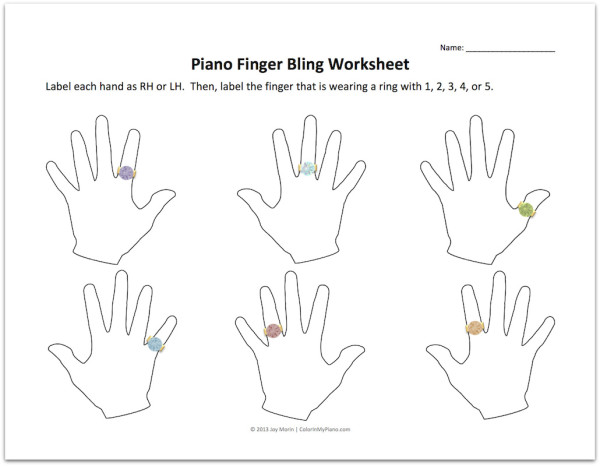
As I was making this worksheet, it occurred to me that it would be fun to get a plastic diamond ring to use when quizzing students on their finger numbers. Fun little props can add a lot of fun to drills. 🙂
Then, I decided to make a digital version of this worksheet to use on my iPad with the GoodNotes app. Students can draw on each page in order to label the hand and finger. It’s a quick little activity that can be completed during the lesson.
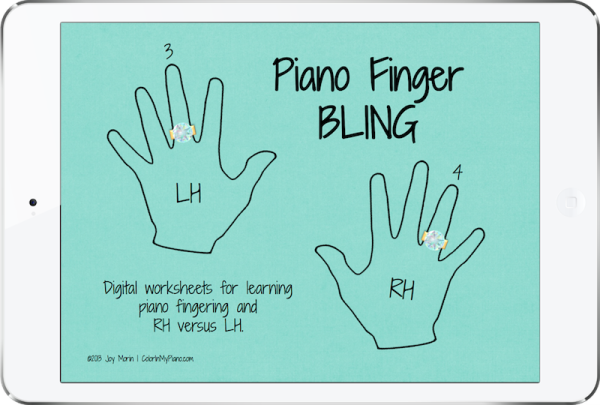
To download the printable worksheet, visit the Printables > Worksheets page and scroll down to “Piano Finger Bling worksheet.”
 Piano Finger Bling worksheet (204.0 KiB, 16,288 hits)
Piano Finger Bling worksheet (204.0 KiB, 16,288 hits)
To download the digital PDF worksheet, visit the Printables > For iPad page and look for “Piano Finger Bling.”
 Piano Finger Bling (794.3 KiB, 5,175 hits)
Piano Finger Bling (794.3 KiB, 5,175 hits)
Enjoy!


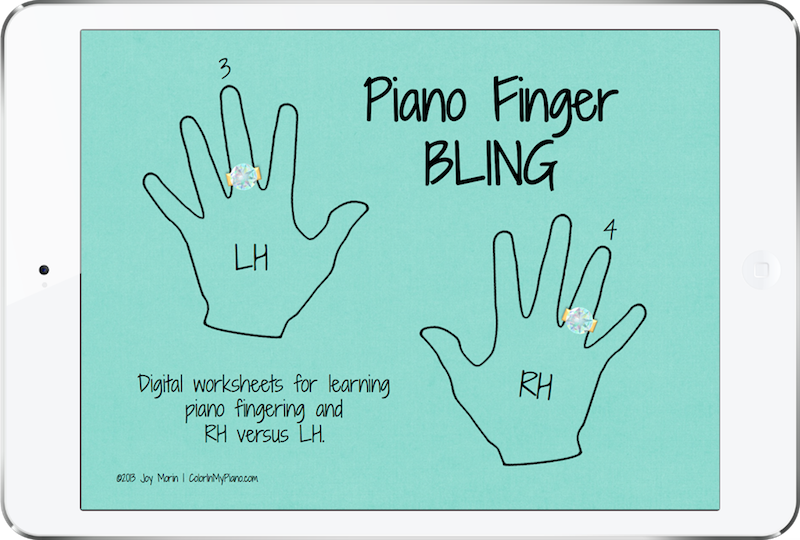
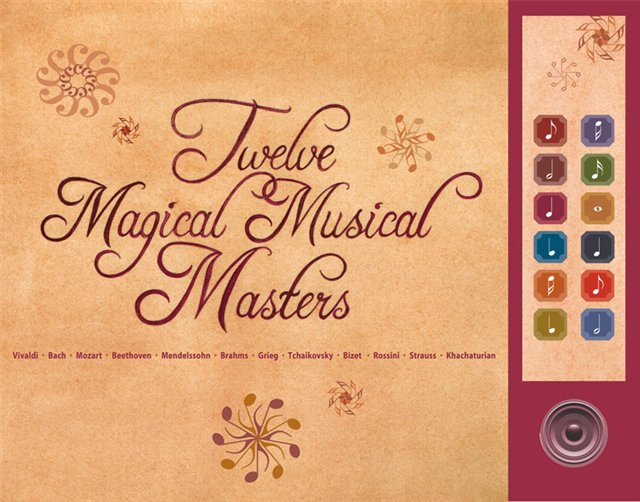
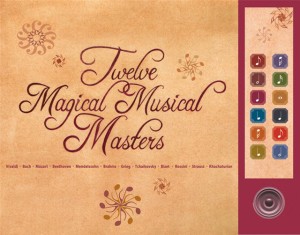 “Twelve Magical Musical Masters” is a book containing the stories of twelve well-known classical composers. Each page features an illustration and a short bio that encourages the reader to press a button to hear the accompanying music.
“Twelve Magical Musical Masters” is a book containing the stories of twelve well-known classical composers. Each page features an illustration and a short bio that encourages the reader to press a button to hear the accompanying music.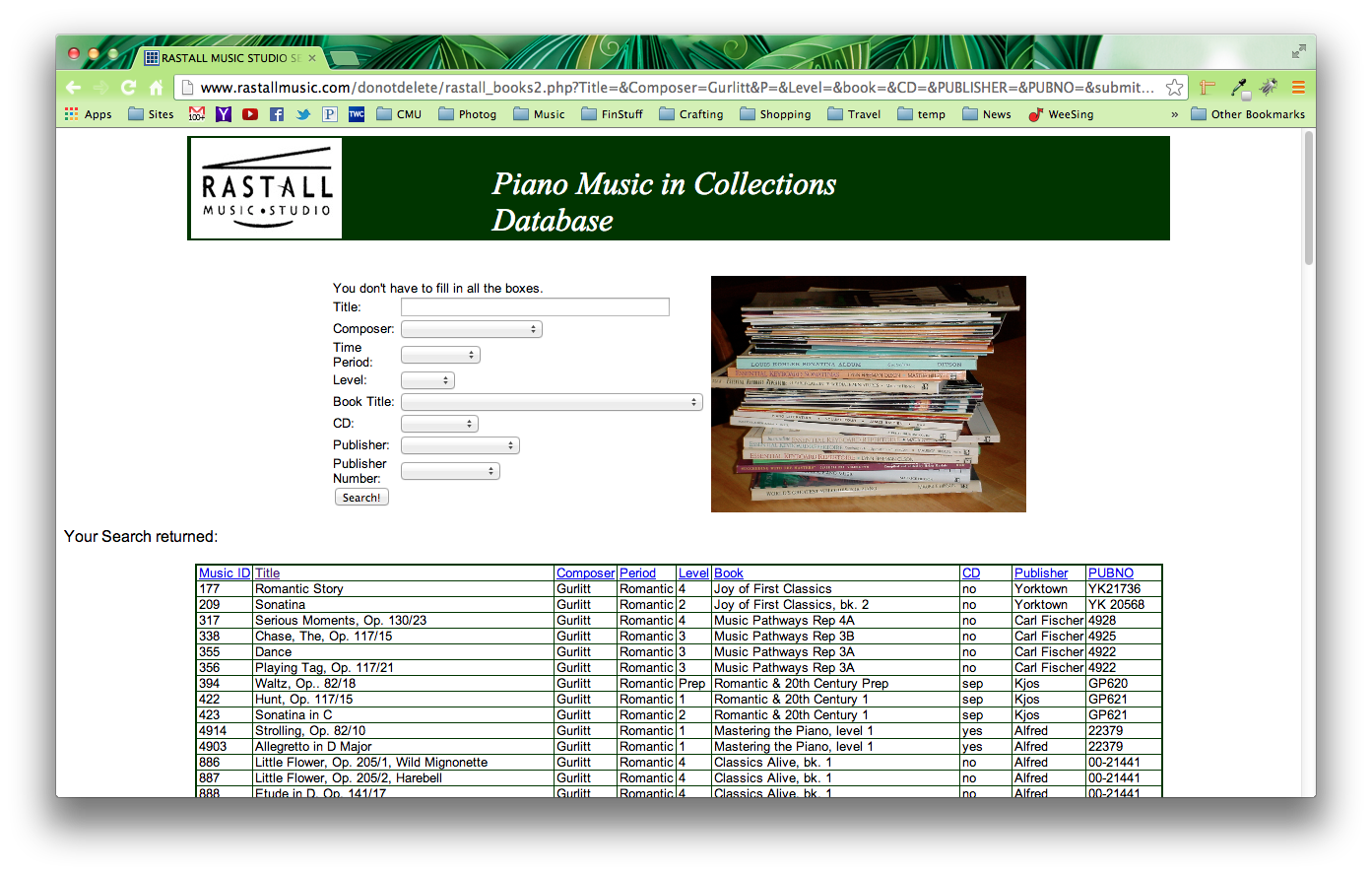
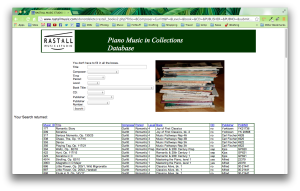 I recently found out about a great resource by Bobbie Rastall, a piano teacher from Maryland. Bobbie has an online database that allows teachers to search for a title or composer and see a list of which classical anthologies for students contain that piece of music. What a great resource!
I recently found out about a great resource by Bobbie Rastall, a piano teacher from Maryland. Bobbie has an online database that allows teachers to search for a title or composer and see a list of which classical anthologies for students contain that piece of music. What a great resource!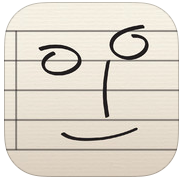

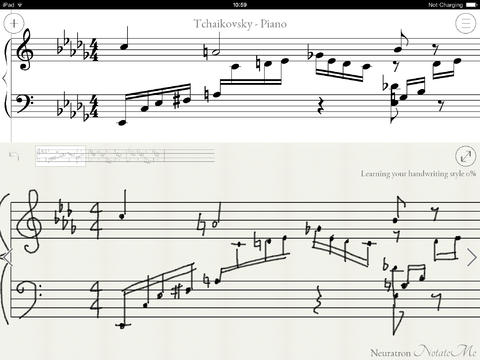
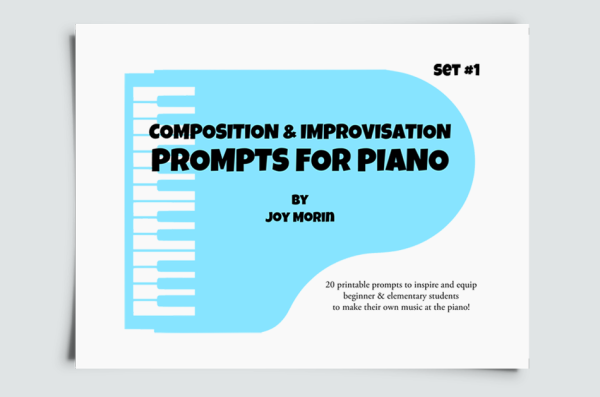
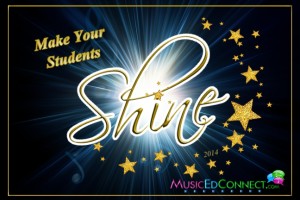 Just a quick post to announce the randomly selected winner of
Just a quick post to announce the randomly selected winner of 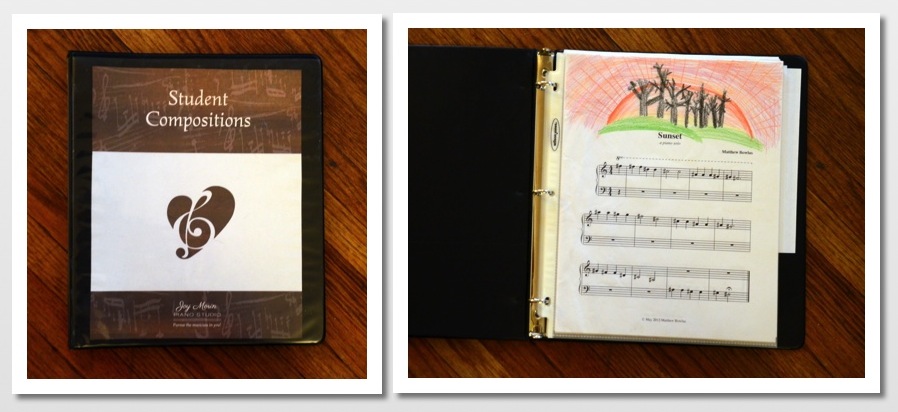
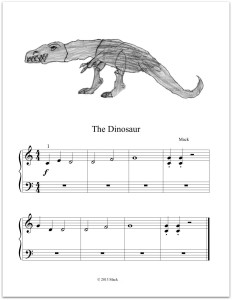 For the past six months, I have been working on a new resource to help piano teachers compose and improvise with their students. I am going to give you the full scoop on the new resource soon, but I wanted to introduce the resource with this article discussing how composition can be used in the private piano lesson. Update: the new “Composition & Improvisation Prompts for Piano” eBook is now available
For the past six months, I have been working on a new resource to help piano teachers compose and improvise with their students. I am going to give you the full scoop on the new resource soon, but I wanted to introduce the resource with this article discussing how composition can be used in the private piano lesson. Update: the new “Composition & Improvisation Prompts for Piano” eBook is now available 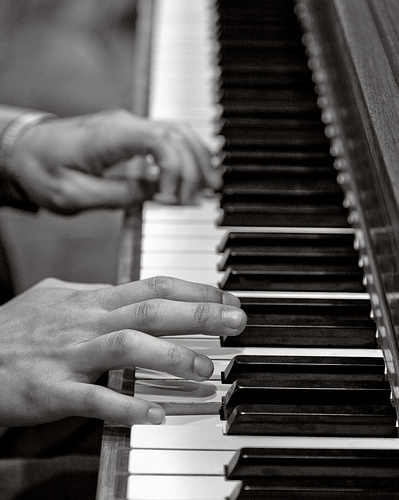
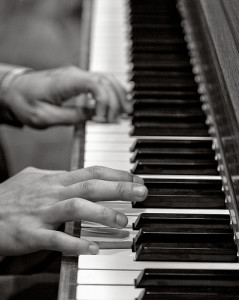 Classroom music educators are taught and encouraged to be music advocates, especially when music programs are in danger of being cut due to budget restraints. Regardless of your stance on the inclusion of music education in public schools, Independent Music Teachers are certainly advocates of music in general, and perhaps also for the rest of the arts.
Classroom music educators are taught and encouraged to be music advocates, especially when music programs are in danger of being cut due to budget restraints. Regardless of your stance on the inclusion of music education in public schools, Independent Music Teachers are certainly advocates of music in general, and perhaps also for the rest of the arts.